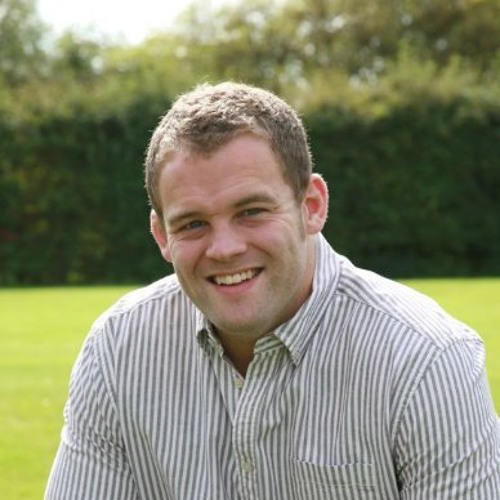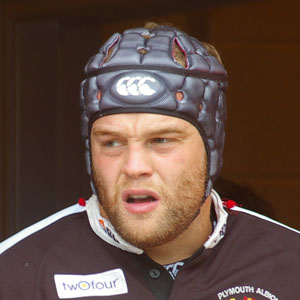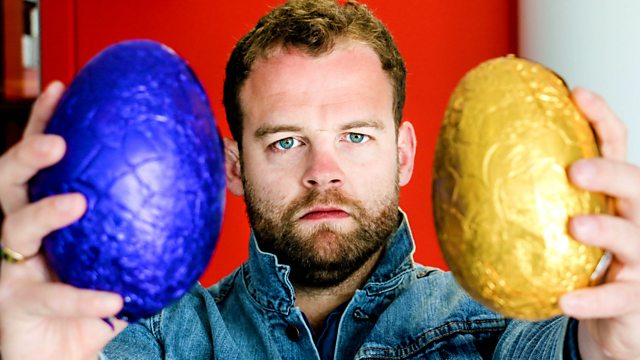James Waterhouse
James was another contemporary of mine at Plymouth Albion and an old chum of Geoff Griffiths. A tall and hardworking back row from Esher, ‘The Moose’ established himself as a popular figure in the squad and a man not unafraid of having fun.
James moved back to Esher after leaving Plymouth and found that his interests lay in another direction. He’s since become a BBC correspondent and hearing his distinctive voice on Radio 1 Newsbeat is always a small joy.
How did you end your career?
I ended it on my own terms at 25-years-old. I was in my sixth year of playing at Championship level and the combination of knowing I wouldn’t play any higher and yearning for something else was too much.
The decision was actually made under the showers at Slough rugby club when I attempted amateur rugby again. I wasn’t as fit as I was. Everything felt samey. It was no longer a release. I was done.
Were you happy to end your career when you did? Why?
Yes - for the simple reason it coincided with the realisation of what I wanted to do next. In the May of 2011 I’d successfully made it through a selection day at the London College of Communication. It was for a post-graduate diploma in Broadcast Journalism. I’d found a meaningful route out of the second-tier rugby bubble and I certainly wasn’t going to hang around any longer.
To be clear though, what preceded this was a season where the main personal highlight was the piss-up at a training camp in Perugia. I didn’t realise at the time but I’d become demotivated. I wasn’t training as often or as hard as I should have been as a professional and the inevitable gathering of splinters on the subs bench only compounded my misery.
I’d also started to gain perspective as I grew older. I never came across one coach who could successfully manage or give feedback. As you mature you scrutinise more and the “let’s smash them…big first ten minutes…we need a reaction” clichés churned out in every team huddle just became too much. Also, the cycle of “training + playing + get boozed” had had its day for me. Why not just get boozed?
How did you prepare for retirement while you were playing?
I tried stuff. Towards the end of my final season with Esher I worked for a recruitment firm for a couple of months. Then I started a blog about spending a day in the shoes of different teammates in their day jobs. It ranged from personal training to pest control and was quite a good read too…until I got someone fired.
Are you still involved in rugby in any capacity?
Only as a spectator.
Do you compete in another way now?
Broadcast journalism is one of the most competitive industries so I guess I do, although more so in the early days as I tried to establish myself. Now I find if I just focus on my stories and not worry about what others are doing – I have a more enjoyable time.
What did you do immediately for work?
I got picked up by BBC Essex local radio through college and freelanced there for two years as a reporter.
How did it go?
Overall – well. I was thrown into some of the most dramatic murder trials and crime scenes within my first few weeks. I made just about every mistake you could make (really), but am better for it.
What are you doing now?
I have been a reporter at BBC Newsbeat on Radio 1 and 1xtra for the past five years. It’s not just radio though; I’ve produced and presented iPlayer documentaries, social videos and online articles.
I’m also a BBC correspondent with the wider BBC News for TV and radio.
Is this something you see yourself doing long term?
Yep. The variation and unpredictability is unrivalled in my view. It’s super-interesting and…I know this makes me sound like I’m on The Apprentice... I feel like I make a difference to people’s lives.
Right now I can’t see myself ever working in PR – unless it’s something I 100% believe in… or paid through the nose for.
What does it provide for you apart from money?
The chance to meet people and visit places you otherwise wouldn’t.
What support did you receive with your transition?
I got some well-timed advice from the Esher chairman John Inverdale towards the end of the season. However I couldn’t have forged this path without the full, unconditional backing from my parents. The course was nine grand after all.
Would you say that you have transitioned?
Yes, within a month of hanging up my boots.
Did you experience any mental health issues as a result of retiring?
I certainly struggled with a level of anxiety after suddenly being swallowed in another career I was desperate to succeed in, in fact I still do. Otherwise I consider myself fortunate that my rugby retirement was the exact right thing for me to do at that time.
What has sport given you?
Life-long friends. Incredible formative memories, and certainly no regrets. Well…
What’s your best memory from your career?
Drawing with Exeter 12-12 at Sandy Park in 2009 to scupper their promotion hopes. It was an incredible result with a special group of players at Esher.
If you had one piece of advice for retiring athletes, what would it be?
You are 100% responsible for what you do after playing, so take that responsibility. Embrace your playing background and go try different things. Hopefully you’ll end up doing something you believe in.
Here are some links to James in action:


